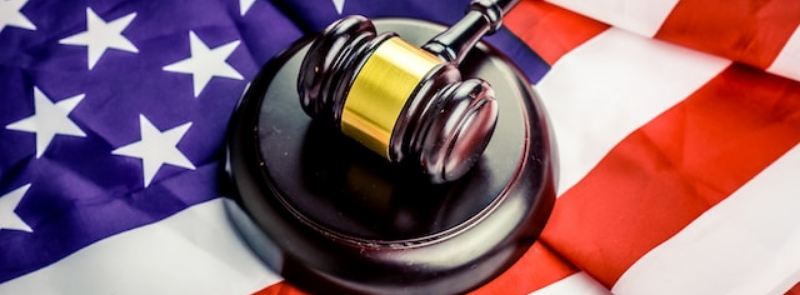
When It Occurs
Every July 30th
Timeline
Days Passed (938)
# Hashtags
#WhistleblowerAppreciationDay #SupportingWhistleblowers
National Whistleblower Day, observed on July 30, holds immense significance in safeguarding the integrity and well-being of the United States. It serves as a poignant reminder of the pivotal role whistleblowers play in upholding the sanctity of our nation.
Corruption and illicit activities can erode the fabric of any society or industry. When left unchecked, they fester and perpetuate, causing widespread harm. Whistleblowing, the act of courageously reporting unlawful actions to the authorities, becomes instrumental in preserving public rights and the sovereignty of the nation.
This day traces its origins back to a pivotal whistleblowing event in the 1700s, which prompted the American Congress to enact measures safeguarding the rights of whistleblowers. Since then, National Whistleblower Day stands as a tribute and encouragement for individuals to step forward and expose wrongdoing, ensuring accountability and justice prevail for the greater good of society.
Origins and History
Whistleblower Appreciation Day was established to highlight the vital role whistleblowers play in maintaining integrity and accountability in various sectors, including government, corporate, and non-profit organizations. The day underscores the importance of protecting and supporting whistleblowers who courageously come forward to report wrongdoing.
Historical Background
Whistleblowing has a long history in the United States, with notable examples such as:
- The Revolutionary War: One of the earliest instances of whistleblowing occurred in 1777 when ten sailors and marines blew the whistle on the commander-in-chief of the Continental Navy for mistreatment of prisoners of war.
- The Civil War: The False Claims Act, also known as the "Lincoln Law," was enacted in 1863 to combat fraud by suppliers of the Union Army. This act included provisions to protect and reward whistleblowers.
Modern Legislation
Modern whistleblower protections have been strengthened through various laws and acts, including:
- Whistleblower Protection Act of 1989: Protects federal employees who disclose government misconduct.
- Sarbanes-Oxley Act of 2002: Provides protection to employees of publicly traded companies who report corporate fraud.
- Dodd-Frank Wall Street Reform and Consumer Protection Act of 2010: Includes provisions for whistleblower protection and financial rewards for reporting securities violations.
Significance of Whistleblower Appreciation Day
Whistleblower Appreciation Day serves several important purposes:
- Acknowledgment and Gratitude: It recognizes the courage and contributions of whistleblowers in promoting transparency and justice.
- Awareness: It raises public awareness about the importance of whistleblowing and the protections available to whistleblowers.
- Advocacy: It highlights the need for continued legal protections and support systems for whistleblowers.
Ways to Observe Whistleblower Appreciation Day
There are various ways to observe and celebrate Whistleblower Appreciation Day:
- Educational Events: Organize or attend seminars, webinars, or panel discussions that focus on the role of whistleblowers, legal protections, and case studies.
- Advocacy Campaigns: Support advocacy groups and organizations that work to protect whistleblowers and promote transparency.
- Social Media: Use social media platforms to share stories of whistleblowers, raise awareness, and promote the importance of whistleblowing.
- Film Screenings: Watch and discuss films or documentaries that depict whistleblowing cases, such as "The Insider," "Erin Brockovich," or "The Whistleblower."
- Recognition Awards: Nominate and recognize individuals who have made significant contributions through whistleblowing in their organizations.
Notable Whistleblowers
Several whistleblowers have made significant impacts through their actions:
- Daniel Ellsberg: Released the Pentagon Papers, exposing government secrets about the Vietnam War.
- Sherron Watkins: Warned of accounting irregularities at Enron, contributing to the exposure of the Enron scandal.
- Edward Snowden: Disclosed classified information about NSA surveillance programs.
Challenges Faced by Whistleblowers
Whistleblowers often face significant challenges, including:
- Retaliation: Many face job loss, harassment, or legal action as a result of their disclosures.
- Emotional and Mental Strain: The stress and isolation from whistleblowing can take a toll on their mental health and personal relationships.
- Legal Battles: Whistleblowers may need to navigate complex legal systems to seek protection and redress.
Importance of Whistleblower Protections
Protecting whistleblowers is crucial for several reasons:
- Encouraging Reporting: Strong protections encourage more individuals to come forward with information about wrongdoing.
- Maintaining Integrity: Whistleblowers help maintain the integrity of organizations by exposing fraud, corruption, and unethical practices.
- Public Safety: Reporting unsafe practices can prevent harm to the public and ensure compliance with regulations.
Conclusion
Whistleblower Appreciation Day is a vital observance that honors the bravery and contributions of whistleblowers. By recognizing their efforts and advocating for their protection, society can promote a culture of accountability and transparency. On July 30th, take the time to learn about, support, and celebrate whistleblowers who have made a difference.


